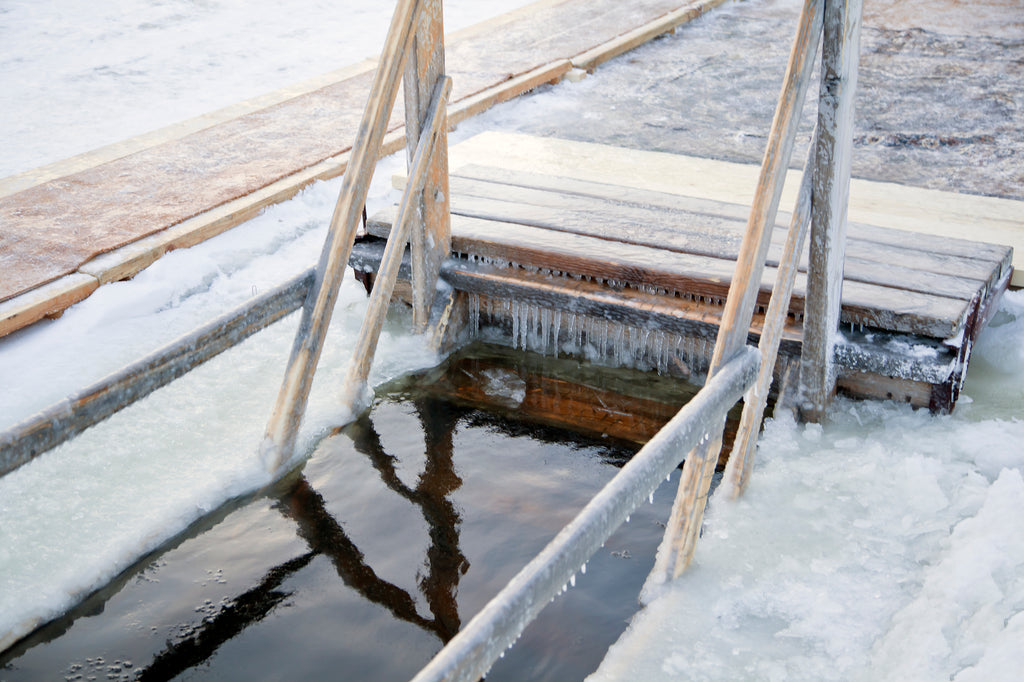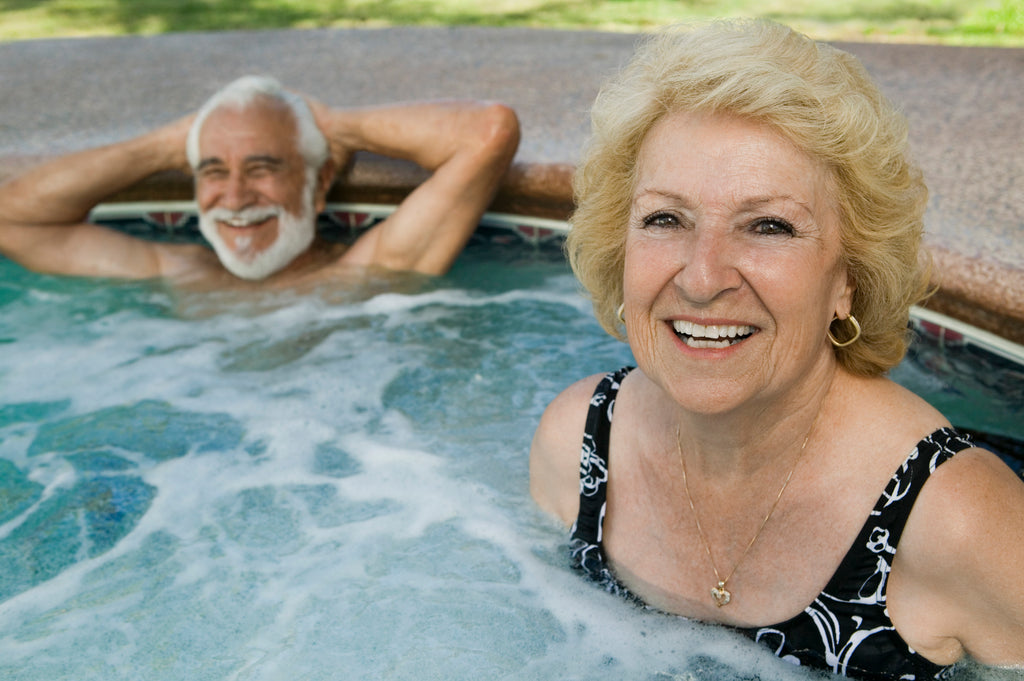For many people, one word comes to mind when you mention cold showers: why. And you're likely no exception. But as you're probably aware, there's a small, vocal faction amongst us who love the shivering in the icy, cold water. These are the ones who start the day with the most frigid showers they can tolerate and jump into the sea for some winter swimming without an ounce of hesitation. Don't go dismissing these individuals as out of their minds just yet, though.
As surprising as this may be, it appears that there is evidence showing the benefits of immersing yourself in cold water–also known as cold water therapy. But what’s the science behind this? And what benefits does it bring about, exactly? Also, is it really a safe practice if you’re so, so cold? This article is going to answer these questions, and more, in just a bit.
What Is Cold Water Therapy?

At its core, the term ‘cold water therapy’ means exactly what it says on the tin–the practice of using water that’s around 59°F to bring about health benefits or even treat specific health conditions (1). It's also known as cold hydrotherapy. Interestingly, hydrotherapy has been in use since ancient times to balance the mind and body. For example: according to Hippocrates, widely-known as the 'father of medicine,' water therapy 'allays lassitude' (physical or mental weakness). As it turns out, he was right!
Experts now believe that when practiced regularly, cold water therapy can provide long-lasting changes to your body's immune, lymphatic, circulatory, and digestive systems that enhance the overall quality of your life (2, 3).
What Is Cold Water Therapy Used For?

As mentioned earlier, cold water therapy can bring about many powerful health benefits! Below, find the top 3 scientifically-proven uses for the therapy–along with how it works (i.e. its mechanism)–that may have you jumping into a bone-chilling shower to kickstart the day.
Anxiety and Depression
Case studies suggest that cold water therapy may help alleviate symptoms of depression and anxiety in some people. A 2018 case study published in the BMJ Case Reports, for example, involves a woman who had experienced anxiety and depression since 17 years old (4). After beginning a trial program of weekly open water swimming at the age of 24, she experienced such a significant reduction in her symptoms that she could stop taking medication. And even after a year had passed, her doctors reported that regular swimming still kept her depression symptoms at bay. This finding is supported by a 2008 study where researchers found that a program of short, twice-daily cold showers reduced depressive symptoms (5).
These beg the question: how does cold water immersion therapy work for alleviating anxiety and depression? Well, it has been thought that the therapy may have a mechanism similar to another proven anti-depressant and anti-anxiety treatment: electric shock therapy (ECT) (6). Just so you know, ECT involves a brief electrical stimulation of the brain while the patient is under anesthesia. While scientists are still unsure how ECT works to help psychiatric disorders, they believe that it can flood the brain with neurotransmitters such as serotonin and dopamine, which are known to be involved in conditions like depression and even schizophrenia (7, 8, 9).
Fibromyalgia
If you’re living with fibromyalgia, a chronic condition that causes musculoskeletal pain, fatigue, and localized tenderness… Then you most likely feel there is no cure for the pain and fatigue you often feel (10). Fortunately, though, it appears that cold water therapy could be a promising treatment for fibromyalgia. Cold exposure seems to activate the sympathetic nervous system and stimulate your brain’s release of norepinephrine, an adrenal hormone that can help you naturally feel happier (11). Cold water therapy also appears to increase your body’s production of ‘feel-good’ molecules–beta-endorphins–that can help boost your mood and better deal with pain (12).
And if you need more proof… Well, how about the fact that Lady Gaga also does it? In an Instagram post, the massively-popular singer explained that she soaks in sub-zero temperatures for up to 10 minutes in an attempt to relieve her fibromyalgia symptoms. Here’s a disclaimer, though. The British National Health Service (NHS) recommends warm water swimming and hydrotherapies for easing fibromyalgia symptoms; it does not mention cold water therapy as a recommended treatment (13).
Muscle and Joint Pain
It's no secret that athletes–both amateur and professional–love the ice bath; after a particularly grueling training session, you can be sure cold water therapy is the first thing on their minds for some much-needed muscle pain relief. And, of course, this practice is rooted in science. Experts believe that immersing in cold water helps reduce inflammation in muscles by decreasing blood flow and, therefore, the pain that comes with it (14). Imaginably, because cold water therapy reduces inflammation, it can also help with joint pain. It's said that cold hydrotherapy is best used during the acute stages of inflammation (e.g. a recent sprain or injury), gout, or tendonitis.
So, if you frequently find yourself struggling to get out of bed in the morning because of muscle and joint pain? Then you might want to consider investing in a cold water therapy machine, which typically consists of a cold water circulating system, that you can place on whichever body part that hurting (i.e. your knees or shoulders).
Are There Any Side Effects and Risks?

But, of course, you could also DIY cold water therapy at home without investing in fancy equipment. All you need to do is fill up a tub with ice, fill it up with water–and voila, cold therapy. Before you do that, though… You must be wondering: are there any risks to cold water therapy?
To be completely honest, there are. Cold water therapy could potentially lead to cardiac stress because it affects your blood pressure, heart rate, and circulation. Several deaths have occurred, both from cold exposure and heart attacks, during open water swim events (15). So, before trying, be sure to consult your doctor on the suitability of cold water therapy for you. You should also keep immersions as brief as possible.
Alternatives To Cold Water Therapy
Not a big fan of shivering? Thankfully, there are many different hydrotherapy types, which can enhance your wellness levels–but without the biting cold. Common types, along with their respective benefits, include the following.
#1 – Float Therapy

Float therapy (otherwise known as sensory deprivation therapy) involves floating in lukewarm water meant to match your body temperature. The idea is that it can help your body enter a deep state of relaxation, so your brain–in turn–enters a place of rest and repair. And the science appears to check out. Research suggests that float therapy can help ease anxiety and depression (16, 17, 18). More impressively, it seems that float therapy can even help people with chronic pain conditions, including arthritis (19).
#2 – Therapeutic Baths

Therapeutic baths involve soaking in a tub of warm water (that's comfortable to the hand)–often with additives such as Epsom salt, aromatherapy oils, dead sea salts, and herbs. This practice is useful in treating skin conditions, joint problems, and even emotional stress. Better yet, a growing body of research also shows that passive heating (i.e. immersing in warm water) can also reduce the risk of having a heart attack, improve blood sugar control, and lower blood pressure (20, 21, 22).
Researchers even collected data in a study that showed that soaking in an hour-long hot bath can burn as many calories as a 30-minute walk (23). Pretty impressive results just from soaking, wouldn’t you agree?
#3 – Contrast Hydrotherapy

Also known as water circuit hydrotherapy, contrast hydrotherapy involves alternating hot and cold water treatment. Okay, so, admittedly–this involves the cold. But hey… The cold is closely followed by immersion in warm water, so it's not that bad compared to actual cold water therapy. And besides, the treatment has been shown to reduce fatigue, decrease muscle soreness, remove excess lactic acid, and decrease swelling (24, 25, 26, 27, 28). And the key to all these benefits is in the rapid changes produced in your circulatory system when you go between the two temperatures.
When you submerge your body in cold water, your capillaries (i.e. small blood vessels) respond to the cold by getting smaller. This is known as vasoconstriction (29). When you immerse yourself in warm water, the opposite occurs. Your capillaries open up. This is known as vasodilation (30). So, when you rapidly alternate between cold-water and hot-water immersions, your capillaries open and close in a pulsing, pump-like motion–improving circulation and, in turn, bringing about the health benefits as mentioned earlier.
Yes, Cold Water Therapy Is Good For Your Wellness

Bottom line? Cold water therapy is indeed good for your wellness; people have used it for centuries, after all! Also, there's the fact that it's likely to incur minimal additional costs for you. For example, you could leave the water heater switched off in the morning. Or, pour some ice into your evening bathtub soak. Just remember to consult a doctor first and keep the sessions short. Otherwise… Soak away to an invigorated self!








